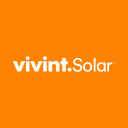Solar Power Promise Still Unfulfilled
Submitted by Wall St. Daily as part of our contributors program
Solar Power Promise Still Unfulfilled

- Will United Airlines Stock Continue To See Higher Levels After A 20% Rise Post Upbeat Q1?
- Up 8% This Year, Why Is Costco Stock Outperforming?
- Down 7% In A Day, Where Is Travelers Stock Headed?
- What’s Next For Johnson & Johnson Stock After Beating Q1 Earnings?
- Should You Pick UnitedHealth Stock At $480 After A Q1 Beat?
- American Express Stock Is Up 17% YTD, What To Expect From Q1?
By Tim Maverick, Staff Writer
Solar is the power source that keeps on giving . . . investors anxiety.
The latest example is Vivint Solar (VSLR), the second-biggest U.S. installer of residential solar panels with 9% of the marketplace. The company is majority owned by the private equity firm, Blackstone (BX). It trails only Elon Musk’s SolarCity (SCTY),which has 29% of the market.
On paper, it looks like this company should be doing quite well. But Vivint’s first-ever quarterly earnings report showed a wider-than-expected loss of $0.66 a share. That’s hard to believe, considering the price of installation is falling, thanks to cheaper panels from China.
And the market is strong.
In the United States, installed solar power capacity increased six-fold since 2010. Half of that new capacity comes from net-metered solar panels built on top of homes and businesses. Installations are forecast to increase another 38%, too, this year. Vivint itself says it’ll install a total of 150 megawatts of residential solar capacity in 2014.
Yet, somehow . . . solar companies continue to lose money and are left sputtering along.
What’s Under the Hood?
A look at Vivint’s numbers specifically shows that the company more than doubled the megawatts of solar panels installed in the previous three years combined. However, its operating expenses in the quarter went up more than four times (compared to the previous year).
So what’s the problem here?
Well, the company’s revenue largely comes from selling long-term service contracts to homeowners for the solar electricity (instead of private solar installations). Many of these customers are in the solar-challenged Northeast. Vivint doesn’t serve business or industrial customers, either.
SolarCity does serve industrial customers, but it only installed 18 megawatts in the third quarter, which is the same as in 2013. And only about 20% of SolarCity’s revenue comes from non-residential customers.
The real problem for both lies in the reliance on residential customers.
Shouldering All the Risk
You see, residential customers pay nothing to have rooftop solar panels installed. The upfront capital costs are incurred by the likes of Vivint and SolarCity. They only gradually recover their costs over the life of a 20-year contract as customers pay their monthly bill.
That’s why many solar companies report larger and larger losses. The more homes they install with solar, the more the capital costs . . . and the bigger the loss in the net income over the short term.
The question is: Will solar companies survive long enough to recoup their initial investment?
Things look even more unsteady when you consider the other risks that solar power companies are taking on.
For instance, the federal government incentives for solar power expire in 2016, although some form of incentive from the individual states is likely to remain.
There’s also the energy-pricing risk. As oil and natural gas prices drop, it makes the comparison with conventional power sources more difficult for solar. As less people choose to go green, solar companies have less income.
The bottom line is that even though solar power is expected to grow at a compound annual rate of 37% through 2018, it may not be enough to make these companies profitable.
And “the chase” continues,
Tim Maverick
The post Solar Power Promise Still Unfulfilled appeared first on Wall Street Daily.
By Tim Maverick
